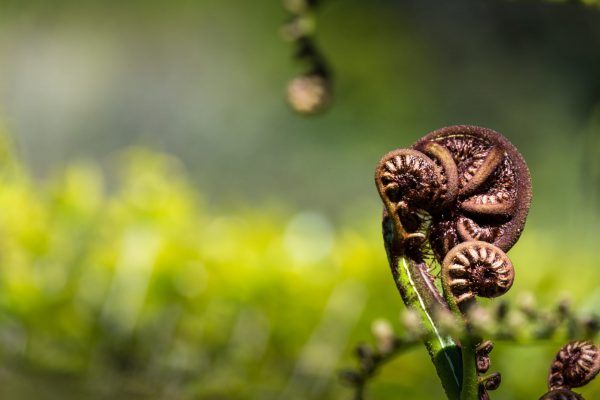Gender, sexual orientation and sex characteristics
-
Misogyny and sexism
Sexism is discrimination based on someone’s gender or sex characteristics. Misogyny is an embedded dislike of women. Participants spoke about misogyny in many forms, including exclusion from leadership because of being female, and being prevented from study or employment as they were of ‘childbearing age’. Others spoke about men being excluded from parenting and childcare roles as they were seen to be for women.
There is favouritism over others, men over women, white over non-white. There’s no equity or even equality.
-
There is favouritism over others, men over women, white over non-white. There’s no equity or even equality.
-
It’s the sexism, there’s plenty of that dished out in rural communities. Don’t necessarily fight every battle, pretend I didn’t hear that. Might walk away from the person.
-
As a woman, you can sometimes feel like you don’t belong. You walk into a senior management meeting and it’s full of guys. You’re excluded because of your gender, or you’re not in the club, you don’t have that special information.
-
I go to heaps and heaps of meetings, always weighted with men over women. I’m always assigned with duties of making cups of tea or taking minutes. Don’t men speak the English language? [ie why can’t they take minutes].
-
Male colleague wasn’t involved but was just coming along. And the doctor spoke to my colleague the whole time. I’m still mad that I didn’t raise that it’s me, you should be talking to, me. Not having your voice heard was really quite confronting. It was my first real overt experience of that kind of sexism.
-
Sometimes I wonder if women in particular are not being taken seriously.
-
-
Homophobia and discrimination towards sexual orientation
Discrimination towards and a lack of acceptance of people of diverse sexual orientations creates barriers to belonging. Participants talked about suppressing their identity to their family, friends and in communities because they feared exclusion. They also shared how systems and institutions often assumed everyone was either male/female and straight, excluding anyone who does not fit these categories.
Fear also, stops people of belonging. Kids who don’t want to be open about their sexuality in our community.
-
Fear also, stops people of belonging. Kids who don’t want to be open about their sexuality in our community.
-
There is a rainbow community here – they are probably in the same category. There was no-one out and out gay when I was here. The culture is really bad. It’s starting to be more accepted. People for whom that’s there lifestyle, they would be on the outer (ie excluded).
-
I went to see an ENT specialist and had to have a small procedure with removing an abscess. Then the doctor said he could do it right then, but it would take another hour of me being there. I said, “I’ll just go tell my husband who’s waiting in the car that I’ll be longer”. He said, “you mean your wife.” I said, “no, my husband.” He got confused a bit, and said, “no, no, let’s make another appointment. Come with me to counter.” We went to the counter to the receptionist and he tried to explain why we’ll make another appointment, and said, “he had his friend was waiting in the car,” and then he said, “his wife,” and then tried to correct himself and said “his partner,” and he was obviously getting flustered and struggling over the words and just could not bring himself to say “husband.”
-
In year 10, basically there was a small bet going around if I was gay. A lot of people would ask me if I was. It was really annoying, I don’t know who started it.
-
Also, for people I don’t look queer enough, or it is always something. I slip between the cracks a lot because I don’t fit into one mould completely.
-
Plus, there’s a large sporting community [in high school], a lot of stigma. Guys with different sexuality don’t play sports. A lot of people asking were in my PE class.
-
I'm the wrong sort of queer, so I'm not welcome in queer spaces, but I'm not welcome anywhere else.
-
Also, systems and institutions routinely assume that everyone is heterosexual AND that heterosexuality is the normal or the best way of living our lives. This makes me feel like I don't belong. I could go on with other examples, but you get the gist.
-
I didn’t feel like I could talk to my mum, I was close to her. I remember talking to someone on the phone, and how a kid on the bus had called someone a homo, and she was laughing about it. I got the feeling that it was a derogatory thing.
-
-
Transphobia and discrimination towards gender minorities
Transgender people and people of gender minorities experience marginalisation and discrimination throughout society. Participants spoke about how organisations and spaces don’t often acknowledge or incorporate their diversity. They shared examples of forms without space for identities outside of the gender binary, accessibility of bathrooms, being misgendered, and misrepresented or suppressed within the health system.
It’s pretty normal. It’s rare to find a spot where I’m gendered correctly and people use my pronouns. We have millenia of gender oppression of violence, of misogyny and suppression of any kind of gender variance. It’s only just changing now. It’s rare to find a spot where I feel comfortable. Workplace, toilets, swimming pools, gyms, health system. Affected how I had my child, didn’t want to go to hospital and have them misgendering me, so had [it] here at home.
-
It’s pretty normal. It’s rare to find a spot where I’m gendered correctly and people use my pronouns. We have millenia of gender oppression of violence, of misogyny and suppression of any kind of gender variance. It’s only just changing now. It’s rare to find a spot where I feel comfortable. Workplace, toilets, swimming pools, gyms, health system. Affected how I had my child, didn’t want to go to hospital and have them misgendering me, so had [it] here at home.
-
It's rare to be able to put my correct gender on forms, and forms insist on asking for gender when they very rarely actually need it. Why does that bus company need my gender? I just want to book a seat.
-
Also about being away from the comfort zone, for example being in places where bathrooms are gendered and there is a sense of exclusion.
-
The only axis on the oppressed side of things, is on gender. I can feel that a visceral sense of not belonging is being misgendered, not recognised.
-
Health system excludes me. It doesn’t recognise who I am [gender labelling], I have to lie or be misrepresented.
-
When you have one of each your parents choose one for you so you can’t put that you’re intersex. So, if there’s a disease that’s prevalent in intersex people you won’t know that they need to be checked.
-
But there’s no room for them to identify as intersex in the paperwork, only in the community, because your parents choose for you at birth.
-
I have ended my friendship with some of my lesbian friends over this. I do not feel accepted as a mum. Valuing my daughter in her journey is more important to me. And philosophically as well about diversity and inclusion. Anything that’s making people fit into a box of arbitrary design, I don’t get that.
-
It’s funny how those things intersect. The dominant culture on this land, this rigid dual gender binary that we are forced into. Even if I go onto a marae, and there are wahine and tane in their role, I don’t feel excluded somehow. It’s a really complexed, nuanced interesting sort of thing. The transphobia and misogyny is institutionalised here. Comes from a culture of Europe, not from here. Doing anti-colonial here, if we have tino rangatiratanga here then I wouldn't be subject to those gendered things as well.
-





